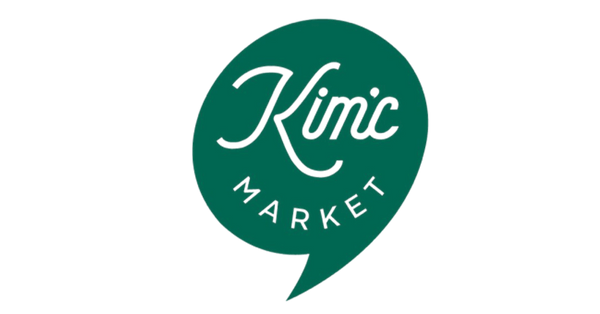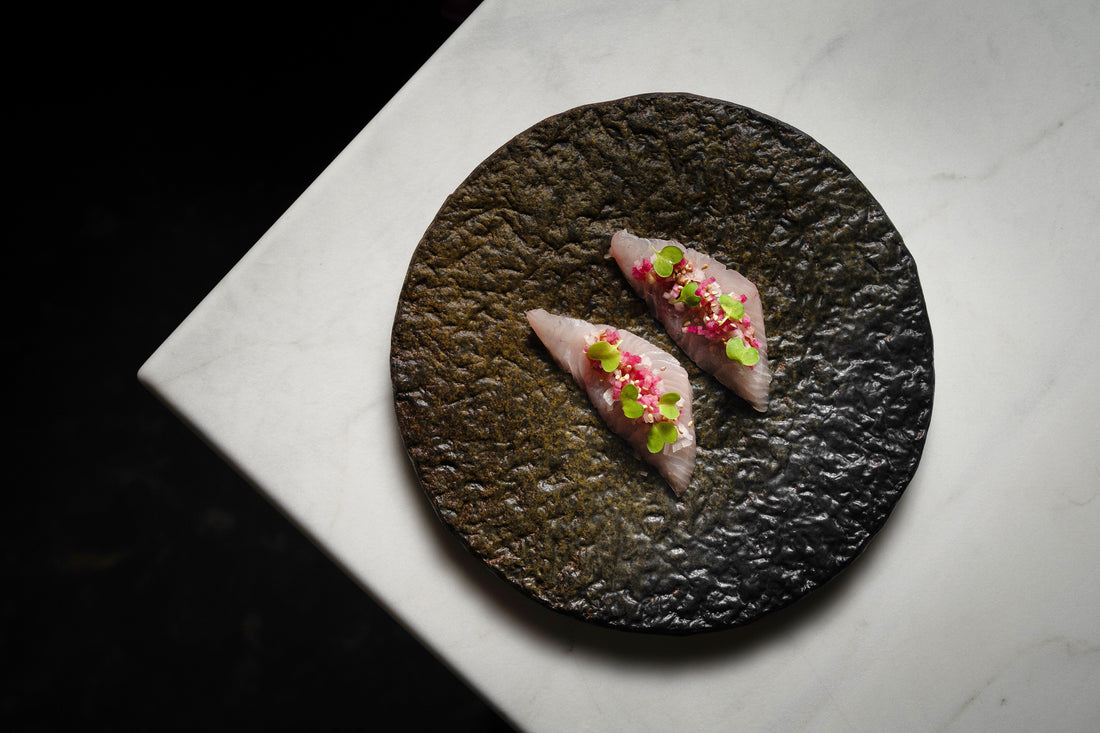We open our chef interview series with chef Hooni Kim. Chef Hooni Kim trained at Daniel and Masa before opening Danji, the first Michelin-starred Korean restaurant in the world, and Hanjan. Born in Seoul, he divides his time between New York City and Korea, where he is the founder of Yori Chunsa, a nonprofit that feeds orphans and trains them to become cooks.
At Meju, his newest restaurant that has one Michelin star, he cooks jang-based Korean cuisine and passionately shares his knowledge about wild fermentation. Meju is like his lecture hall with authentic and healthy Korean food. Here's our conversation with the chef.
When and why did you decide to become a chef?
I became a chef quite late relative to others. I was attending medical school in my late 20’s and was having trouble with my health due to stress. I actually hated medical school and the stress was making me physically sick. I took a year sabbatical to clear my head and refresh. In that year I enrolled in cooking classes at French Culinary Institute where they emphasize interning at local NYC restaurants. One of the restaurants I interned at was Daniel and when they offered me a full-time position 2 weeks in I decided to take the offer. I knew at that time I would be a much better chef than a doctor. I have never regretted that decision. Ever.
How would you describe your overall cooking philosophy?
I rely very much on nature for my cooking. Korean jang fermentation taught me to let go of some control and allow nature to lead my cooking. Ingredient seasonality, local and organic sourcing are important but I go a step beyond and work with the farmers in writing my menu every week at Meju. They are the ones who know which produce taste best and are the most nutritious. With their help I just add a bit of heat and seasoning in my kitchen and allow the flavors they have created with the help of nature to take center stage. I believe the farmers are much more responsible for flavors and nutrition than us chefs. It is a great privilege to be working with so many talented and passionate farmers around NY.
How would you describe Meju? What led you to open Meju?
Meju is my story of the journey I took to find why I am so in love with Korean food. It was a journey that took me all over the countryside of Korea learning what traditional Korean food meant. It was learning that meju fermentation and making the jangs were more than just food but instead the history, culture, family, that defined the spirit of the Korean people.
Meju is my way of defining what traditional Korean food is. It’s to make sure there is a strong foundation of traditional Korean food in the greatest food city in the world here in NYC.

Chef, you utilize traditional Korean jang in your cooking. How does traditional Korean jang differ from the widely available jang that are easily found in supermarkets?
Traditional Korean jangs are made from meju, where the probiotics are born in nature. Meju fermented jangs have much stronger probiotics and microbes that are beneficial to your gut. These microbes are not found in the mass produced supermarket jangs unfortunately.
Fine dining eateries usually change menus every season. You might have limitations as your main base is fermentation. How often do you change your menu? How do you find inspiration for your cooking or recipe development?
My ferments stay similar except changing vintages occasionally. The fresh ingredients I serve at Meju change weekly and sometimes even within the same week. I personally buy all of my produce directly from the farmers as they tell me what is the best that week. I go to the farmer’s market every Wed and Fri and sometimes the ingredients differ.
I don’t change the menu for the sake of change. Nature and the farmers’ harvests dictate my menu and I feel this is what traditional Korean food is.

You're recognized as a trailblazer in the era of "Korean fine dining." What role does Korean fine dining play in spreading Korean cuisine more widely in the U.S.?
I’m not sure if I agree with the “fine” part of the sentence. My restaurants were all very casual places until I recently opened Meju. But the success of Korean fine dining restaurants is very important. It puts Korean cuisine on the biggest culinary stages of the world.
If today were the last day on Earth, what dish would you like to eat? Why that dish?
Without a doubt “kimchi jjim” using very old kimchi and fatty pork belly. Gawaji rice and a fried egg just makes it perfect!
I have a mission every day when I wake in the morning. I want to cook delicious and healthy food to make our customers happy. I succeed in this goal every single day and that makes me extremely successful and happy. Every day.
What do you care most about when choosing your ingredients?
Nutritional value. And that means organic, local, seasonal, and fresh. All of these lead to maximum nutrient density in the vegetables. But when the ingredients are healthy, the flavors are also optimal.





